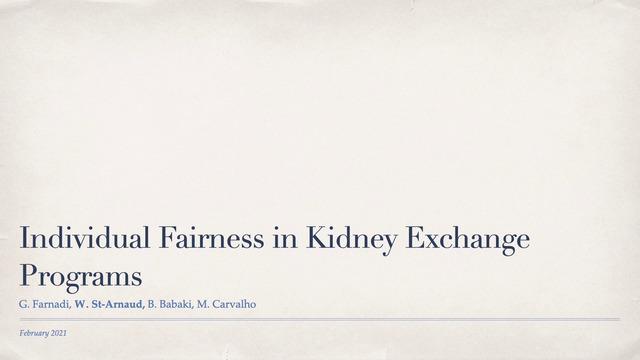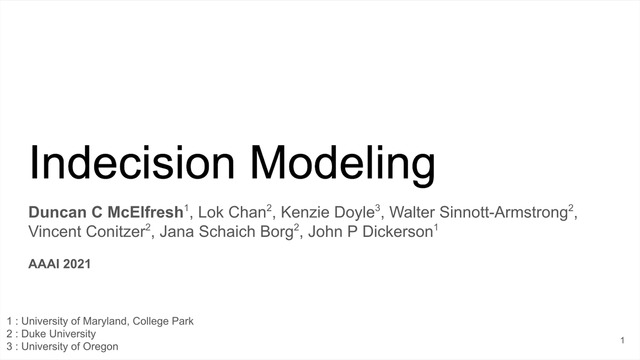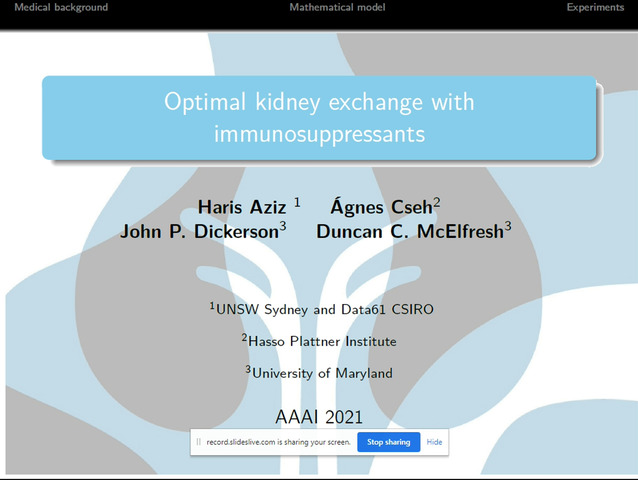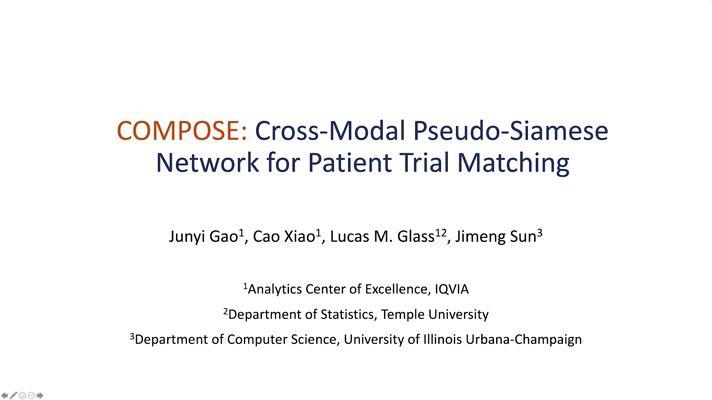Abstract:
Organ transplantation is often the last resort for treating end-stage illnesses, but managing transplant wait-lists is challenging because of organ scarcity and the complexity of assessing donor-recipient compatibility. In this paper, we develop a data-driven model for (real-time) organ allocation using observational data for transplant outcomes. Our model integrates a queuing-theoretic framework with unsupervised learning to cluster the organs into ``organ types'', and then construct priority queues (associated with each organ type) wherein incoming patients are assigned. To reason about organ allocations, the model uses synthetic controls to infer a patient's survival outcomes under counterfactual allocations to the different organ types– the model is trained end-to-end to optimise the trade-off between patient waiting time and expected survival time. The usage of synthetic controls enable patient-level interpretations of allocation decisions that can be presented and understood by clinicians. We test our model on multiple data sets, and show that it outperforms other organ-allocation policies in terms of added life-years, and death count. Furthermore, we introduce a novel organ-allocation simulator to accurately test new policies.









































